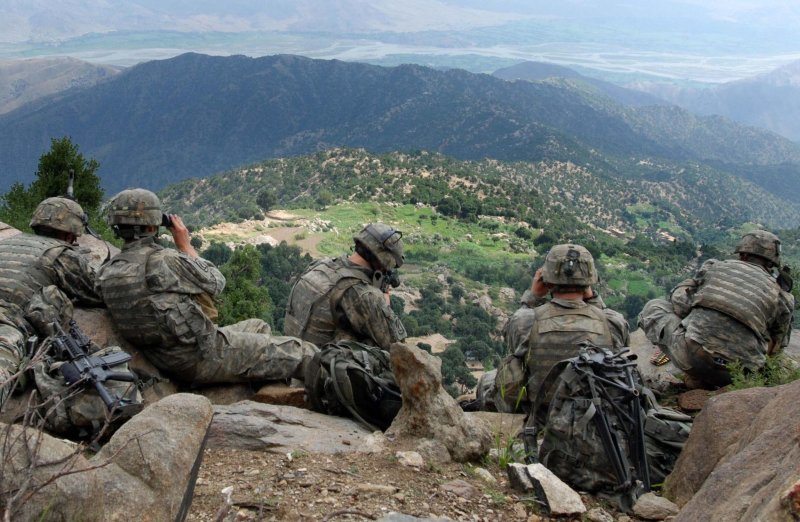The US military’s nearly 1.4 million troops will stay on the job in the case of a government shutdown but they will not get paid, the Pentagon said Friday.
And if Congress fails to agree on a new budget measure by the close of the fiscal year on Monday, September 30, “roughly half” the Defense Department’s nearly 800,000 strong civilian work force would be placed on unpaid leave, top officials said.
The war effort in Afghanistan and other high-priority missions would not be affected but most training and a range of maintenance work would be cancelled if Congress remains deadlocked, according to the Pentagon’s top financial officer Robert Hale.
“We wouldn’t be able to do most training, we couldn’t enter into most new contracts, routine maintenance would have to stop,” he told reporters.
Defense officials outlined how the military would operate under a shutdown as a deeply divided Congress argued over rival spending bills, with the clock ticking on the Monday deadline.
“Military personnel will not be paid until such time as Congress makes appropriated funds available to compensate them for this period of service,” Deputy Defense Secretary Ash Carter wrote in a memo describing contingency plans for a shutdown.
The prospect of military service members and civilian employees having to temporarily forego pay due to acrimony in Congress could exact a high political price for some lawmakers, who often go to great lengths to cultivate the support of soldiers and workers at military bases.
With half of all civilian workers facing unpaid leave under a shutdown, the remaining 400,000 civilian employees would continue to work in areas deemed essential but they too would not be paid during the “lapse,” Hale said.
There also was a “ghoulish” provision under the law that will delay any payments of death benefits to military families who lose loved ones during the government shutdown, Hale said.
However, employees involved in transporting the remains of war dead and arranging funeral services for fallen troops would continue their work.
Carl Levin, the Democratic chairman of the Senate Armed Services Committee, called the possible government closure “unconscionable” and urged Republicans in the House to pass a proposed budget bill that has already cleared the Senate.
“A shutdown would require our troops to go into combat while receiving only an IOU, put hundreds of thousands of DoD (Department of Defense) civilians on furlough without pay, and could even delay death benefits to the families of troops who fall in combat,” Levin said.
The Pentagon released a long list of services deemed vital that would continue during a shutdown, including medical care, mess halls, child care, legal offices, logistics, training, department schools and some accounting sections.
Warships patrolling the Mediterranean, including those deployed for potential military action against Syria, would remain in place, and most of the naval fleet’s operations would not be disrupted.
“I think most of the ships at sea would stay there,” Hale said.
All training for the National Guard and reserves would be cancelled unless it was directly related to operations in Afghanistan or other missions considered critical to national security.
Work on contracts with defense companies could continue if funds have already been allocated.
Hale called the potential shutdown “one more blow to the morale of our civilian workforce,” adding that “morale is already low” after automatic budget cuts forced furloughs for some civilian Pentagon employees.
The Defense Department placed more than 600,000 civilian workers on unpaid leave for several days due to the budget cuts, which are also the result of a political impasse in Congress.
The last time the US government closed its doors was in 1995.










